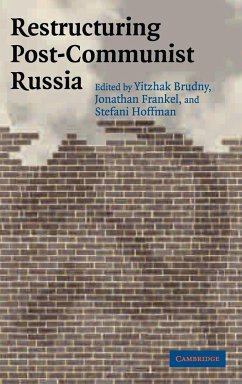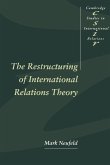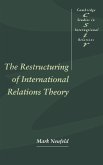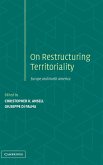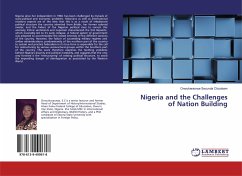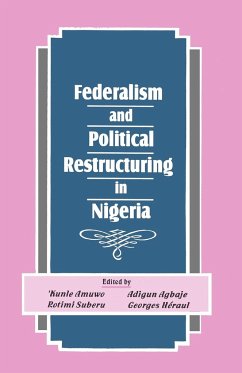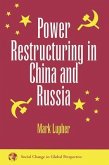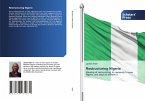Short description/annotation
A comprehensive overview and analysis of political change in Russia since 1991.
Main description
The end of the Soviet Union was a world-defining moment of the twentieth century, but what comes after Socialism(?)33; This collection of original essays - written by Russian scholars and scholars from the West - is a general overview of political change in Russia since 1991, examining the complex interplay between continuity and change that has marked developments in Russia under the leadership first of Boris Yeltsin and now of Vladimir Putin. Rather than see the collapse of state socialism as 'the end of history' or the beginning of the 'transition' to liberal, free market democracy, the contributors instead examine recent Russian history and note that the direction is far from clear. The essays include analysis of Russia specifically, and in comparison with other states of the former Soviet Union and Eastern Europe, and address topics of national identity, demographic change, and the characteristics of Russian democracy.
Table of contents:
Introduction Peter Rutland; Part I. The Comparative Dimension: 1. What went wrong(?)33; Post-communist transformations in comparative perspective Anatoly M. Khazanov; 2. Communist legacies and new trajectories: democracy and dictatorship in the former Soviet Union and East Central Europe Alexander J. Motyl; 3. Learning from post-socialism Valerie Bunce; 4. Ukraine's hollow decade Ilya Prizel; Part II. Russia in Free Fall(?)33; Key Challenges: 5. The Russian transition to the market: success or failure(?)33; Marshall I. Goldman; 6. Potholes on the road to a flourishing Russia: structural problems in the second decade Theodore H. Friedgut; 7. The search for a national identity in the Russia of Yeltsin and Putin Vera Tolz; Part III. The Russian Political System: Toward Stabilization(?)33;: 8. The dilemmas of Federalism: Moscow and the regions in the Russian Federation Oksana Oracheva; 9. The evolution of the multiparty system Andrey Ryabov; 10. The elections since 1989: the end of the chapter(?)33; Nikolai V. Petrov; 11. Leaders, structural conditions, and Russia's foreign policy Rajan Menon.
Hinweis: Dieser Artikel kann nur an eine deutsche Lieferadresse ausgeliefert werden.
A comprehensive overview and analysis of political change in Russia since 1991.
Main description
The end of the Soviet Union was a world-defining moment of the twentieth century, but what comes after Socialism(?)33; This collection of original essays - written by Russian scholars and scholars from the West - is a general overview of political change in Russia since 1991, examining the complex interplay between continuity and change that has marked developments in Russia under the leadership first of Boris Yeltsin and now of Vladimir Putin. Rather than see the collapse of state socialism as 'the end of history' or the beginning of the 'transition' to liberal, free market democracy, the contributors instead examine recent Russian history and note that the direction is far from clear. The essays include analysis of Russia specifically, and in comparison with other states of the former Soviet Union and Eastern Europe, and address topics of national identity, demographic change, and the characteristics of Russian democracy.
Table of contents:
Introduction Peter Rutland; Part I. The Comparative Dimension: 1. What went wrong(?)33; Post-communist transformations in comparative perspective Anatoly M. Khazanov; 2. Communist legacies and new trajectories: democracy and dictatorship in the former Soviet Union and East Central Europe Alexander J. Motyl; 3. Learning from post-socialism Valerie Bunce; 4. Ukraine's hollow decade Ilya Prizel; Part II. Russia in Free Fall(?)33; Key Challenges: 5. The Russian transition to the market: success or failure(?)33; Marshall I. Goldman; 6. Potholes on the road to a flourishing Russia: structural problems in the second decade Theodore H. Friedgut; 7. The search for a national identity in the Russia of Yeltsin and Putin Vera Tolz; Part III. The Russian Political System: Toward Stabilization(?)33;: 8. The dilemmas of Federalism: Moscow and the regions in the Russian Federation Oksana Oracheva; 9. The evolution of the multiparty system Andrey Ryabov; 10. The elections since 1989: the end of the chapter(?)33; Nikolai V. Petrov; 11. Leaders, structural conditions, and Russia's foreign policy Rajan Menon.
Hinweis: Dieser Artikel kann nur an eine deutsche Lieferadresse ausgeliefert werden.

